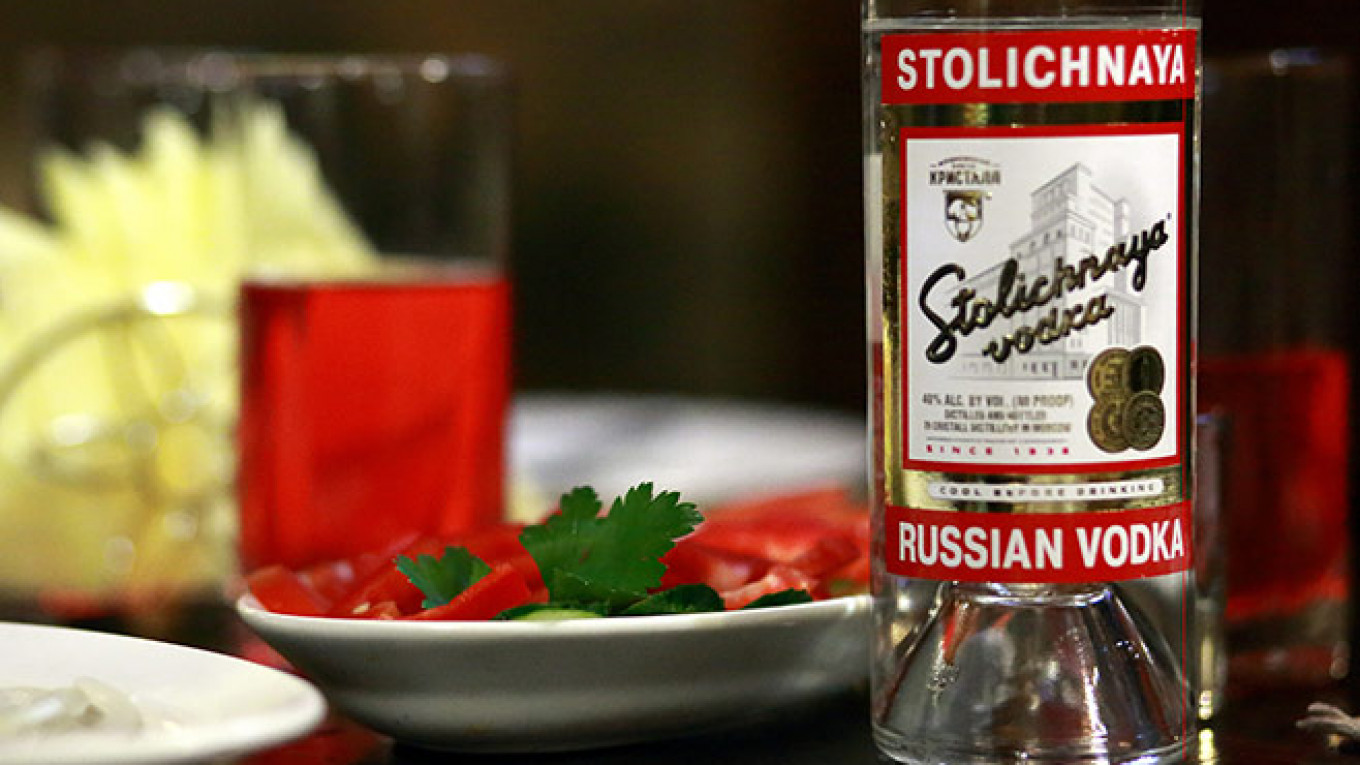A U.S. appeals court on Tuesday revived long-running litigation by a state-run Russian company that says it owns U.S. trademark rights for Stolichnaya vodka.
The 2nd U.S. Circuit Court of Appeals in Manhattan said a lower court judge erred in finding that Federal Treasury Enterprise Sojuzplodoimport ("FTE") lacked standing to sue under the federal Lanham Act because Russia's assignment of the trademark rights was invalid under Russian law.
FTE and co-plaintiff OAO Moscow Distillery Cristall had accused SPI Group, which is owned by Russian billionaire Yury Shefler, and the distributors Allied Domecq, William Grant & Sons and Stoli Group of misappropriating Stolichnaya trademarks that Russia's government had assigned to FTE.
SPI had licensed the U.S. distribution of vodka bearing the trademarks to Allied Domecq from 2001 to 2008, William Grant from 2008 to 2014, and Stoli Group since 2014.
In 2014, U.S. District Judge Shira Scheindlin in Manhattan dismissed FTE's lawsuit, saying the trademark assignment lacked support under Russian law.
But in the 3-0 appeals court decision, Circuit Judge Dennis Jacobs said principles of international comity justified accepting the validity of the assignment, which he said "would undermine no policy or interest" of the United States.
"The declaration of a United States court that the executive branch of the Russian government violated its own law by transferring its own rights to its own quasi-governmental entity (FTE) would be an affront to the government of a foreign sovereign," Jacobs wrote.
Jacobs upheld the dismissal of other FTE claims, including for unfair competition, that had or could have been litigated regardless of standing issues.
Dan Bromberg, a lawyer for FTE, said: "We look forward to proving on behalf of the Russian people that our client FTE is the true owner of the Stolichnaya trademarks, as courts in other countries have recognised."
Last March, a Dutch court in Rotterdam said an SPI affiliate must return the rights in Benelux countries to Stolichnaya-branded vodka to FTE.
Ed Colbert, a lawyer for William Grant, said he was pleased that many FTE claims had been dismissed, and that "our client has more than one meritorious defense to that last count."
A lawyer for SPI did not immediately respond to requests for comment.
FTE began litigating the U.S. trademark rights in 2004. It brought its latest lawsuit in 2014 after Russia issued a decree to clarify its rights.
The case is Federal Treasury Enterprise Sojuzplodoimport et al v. Spirits International BV et al, 2nd U.S. Circuit Court of Appeals, Nos. 14-4721, 15-152.
A Message from The Moscow Times:
Dear readers,
We are facing unprecedented challenges. Russia's Prosecutor General's Office has designated The Moscow Times as an "undesirable" organization, criminalizing our work and putting our staff at risk of prosecution. This follows our earlier unjust labeling as a "foreign agent."
These actions are direct attempts to silence independent journalism in Russia. The authorities claim our work "discredits the decisions of the Russian leadership." We see things differently: we strive to provide accurate, unbiased reporting on Russia.
We, the journalists of The Moscow Times, refuse to be silenced. But to continue our work, we need your help.
Your support, no matter how small, makes a world of difference. If you can, please support us monthly starting from just $2. It's quick to set up, and every contribution makes a significant impact.
By supporting The Moscow Times, you're defending open, independent journalism in the face of repression. Thank you for standing with us.
Remind me later.






